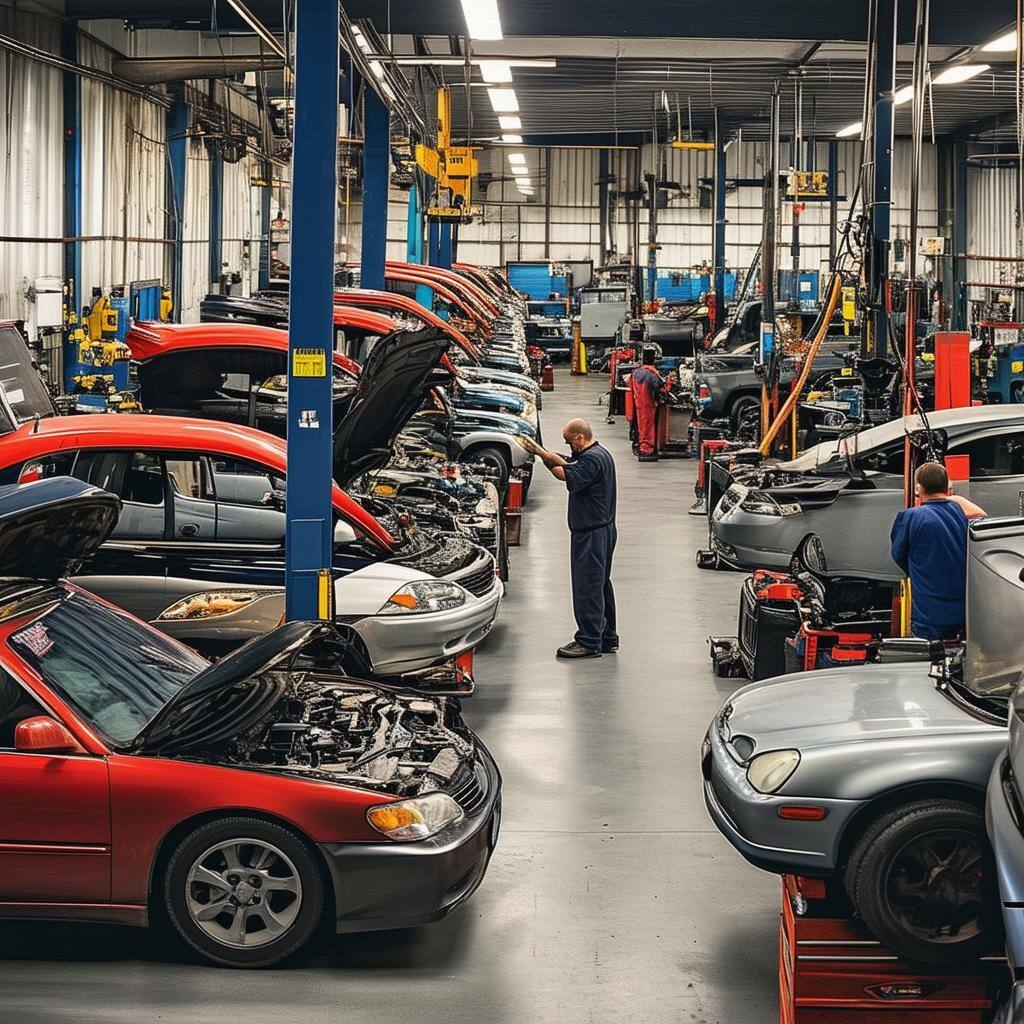Running a successful auto repair business requires access to high-quality tools and equipment. Whether it’s diagnostic machines, lifts, or tire changers, these investments can be costly. Car repair equipment financing and leasing options help shop owners acquire the necessary equipment without significant upfront expenses, enabling them to expand operations, boost efficiency, and stay competitive.
Why Choose Financing or Leasing?
Auto repair equipment financing and leasing offer flexible ways to manage costs while accessing the latest technology. Here’s why it makes sense:
Benefits:
-
Preserve Cash Flow:
- Avoid large upfront costs and maintain working capital.
-
Access Advanced Equipment:
- Upgrade to state-of-the-art tools that improve efficiency and accuracy.
-
Flexible Terms:
- Customize payment plans to fit your budget and business growth goals.
-
Tax Advantages:
- Deduct lease payments or depreciation, depending on the option chosen.
-
Quick Approvals:
- Streamlined processes allow businesses to acquire equipment rapidly.
Types of Car Repair Equipment Eligible for Financing & Leasing
-
Vehicle Lifts:
- Two-post, four-post, scissor lifts, and alignment racks.
-
Diagnostic Tools:
- OBD scanners, engine analyzers, and computer diagnostic systems.
-
Tire and Wheel Equipment:
- Tire changers, wheel balancers, and alignment systems.
-
Air Compressors:
- For powering pneumatic tools and spray painting systems.
-
Brake Service Equipment:
- Brake lathes, testers, and fluid exchangers.
-
Welding and Fabrication Tools:
- MIG, TIG, and plasma welding machines.
-
Painting Booths and Systems:
- Spray booths, ventilation systems, and curing lamps.
-
Hand and Power Tools:
- Impact wrenches, drills, and specialty automotive tools.
-
Shop Management Software:
- Systems for invoicing, inventory tracking, and customer management.
-
Storage Solutions:
- Toolboxes, shelves, and parts organizers.
Financing vs. Leasing
Financing
- What It Is:
- A loan to purchase equipment, repaid over time.
- Best For:
- Shops looking for long-term ownership.
- Advantages:
- Full ownership after the loan is paid off.
- Customize and modify equipment as needed.
- Build equity in your assets.
- Disadvantages:
- Higher upfront costs compared to leasing.
- Responsible for maintenance and repairs.
Leasing
- What It Is:
- Renting equipment for a set term, with options to upgrade or buy.
- Best For:
- Shops needing flexibility or short-term use.
- Advantages:
- Lower upfront costs.
- Maintenance often included in the lease.
- Easier upgrades to new technology.
- Disadvantages:
- No ownership unless a buyout option is included.
- Long-term leasing may exceed the cost of purchasing.
Leasing Options
-
Operating Lease:
- Equipment is rented for a term, then returned or upgraded.
-
Capital Lease:
- Ownership transfers at the end of the term.
-
Fair Market Value (FMV) Lease:
- Choose to buy, return, or upgrade equipment at lease end.
-
$1 Buyout Lease:
- Ownership is guaranteed for $1 after the lease term concludes.
Steps to Secure Financing or Leasing
-
Assess Your Needs:
- Identify the equipment required to enhance your services.
-
Set a Budget:
- Determine how much you can afford in monthly payments.
-
Research Providers:
- Compare financing and leasing companies with expertise in auto repair equipment.
-
Prepare Documentation:
- Gather financial statements, credit reports, and a business plan.
-
Apply for Financing or Leasing:
- Highlight how the equipment will improve efficiency and revenue.
-
Review Terms Carefully:
- Understand interest rates, fees, and end-of-term options before signing.
Industries That Benefit
-
Independent Auto Repair Shops:
- Enhance capabilities with specialized tools.
-
Franchise Service Centers:
- Maintain standardized equipment across locations.
-
Mobile Mechanics:
- Finance portable diagnostic and repair tools.
-
Collision Repair Centers:
- Invest in painting booths and bodywork equipment.
-
Specialty Shops:
- Acquire tools for niche services like transmissions or high-performance vehicles.
Conclusion
Car repair equipment financing and leasing empower auto repair businesses to invest in quality tools without straining their budgets. Whether you need advanced diagnostic systems, vehicle lifts, or tire service equipment, these financial solutions offer flexibility and scalability. Choose the option that aligns with your business goals, and set your shop up for long-term success.











